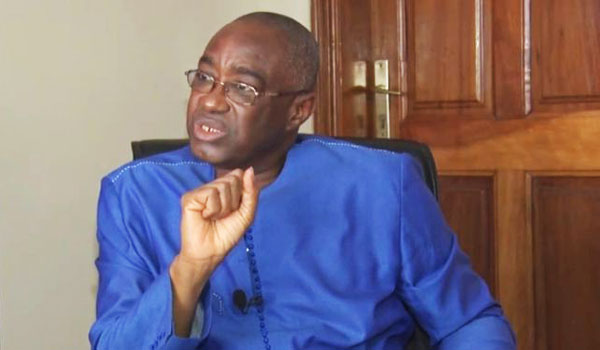What can be done to make Senegal’s food policies more sustainable and allow Senegalese to eat sufficiently and well while not depending on imports? This is the key question that led to a study on the state of food policies in Senegal.
This Friday, September 10, 2021 marked the virtual restitution of this study organized by the Pan African Institute for Citizenship, Consumers and Development (CICODEV Africa) in partnership with the Alliance for Food Sovereignty in Africa (Afsa). In the restitution made this morning, it appeared the need, for the Senegalese authorities and populations, “to go quickly to meet the challenges of food. Given that the population is constantly increasing,” said the actors who conducted the study. The latter cited as an example, “Senegal’s agricultural food policies, to say that they “continue to suffer from a lack of coherence that is perceptible”. As proof, they point to the fact that “plant crops are given priority attention to the detriment of livestock and fisheries”. The same is true for investments in fishing and livestock infrastructure, which, according to them, are “weak and their management inefficient. An assessment that emerges from the survey within the framework of this study. The absence of a specific policy on food and nutritional security was also noted during an initial survey, said Dr. Ibrahima Sylla. The low level of centralization, organization and dissemination of good agro-ecological practices is also a problem. In addition, according to him, “the lack of harmonization of visions, the absence of a consolidated policy applied at the national and sub-regional level; the inadequacy of support for producers; the low level of involvement of agricultural research at the national and sub-regional level. The findings of this study on the status of food policies in Senegal have enabled CICODEV and Afsa to identify a series of actions that would make Senegal’s food policies much more sustainable and capable of providing the Senegalese people with sufficient food.
It is in this context that the recommendations of the actors should be noted. Called “Priority actions to move towards sustainable food policies”, its recommendations are grouped around 4 points. These are on the political, social and economic levels; communication and finally technical and research, listed Dr. Sylla.
On the political level, the actors recommended, according to him, the strengthening of “the will and commitment of political authorities to put food at the heart of territorial and local development strategies”. And also to “proceed with agrarian reforms that can allow producers to access land and engage more actively in entrepreneurial practices. This, according to the rapporteur, is an old demand of farmers’ organizations and remains relevant today.
On the social and economic level, the study continues, “stakeholders agreed on the need to increase consumer awareness and commitment to fight against food dependency and the accumulation of imports. According to the rapporteur, the actors have shown imports as a bottleneck.
Then comes the 3rd point which deals with the communication plan. At this level, it is noted the need to “promote good practices on food policies; strengthen actions aimed at raising awareness to meet the challenges inherent in the destruction of our food systems; build strong and structured messages around the modes of food from our territories; work on strategies for awareness campaigns and nutrition education; mobilize my actors around a plea for urban food action; strengthen the popularization of endogenous knowledge.
The final plan of this study focused on the “technical” and “research” aspects. In this regard, the stakeholders recommended “working on the production and dissemination of quality control standards to support food production; promoting certification systems to support the development of sectors and value chains; strengthening research on integrated resource management; supporting agricultural and technological research; and setting up strategies and systems for the use of available documentation.
Source:https://www.dakaractu.com/ of September 11, 2021

